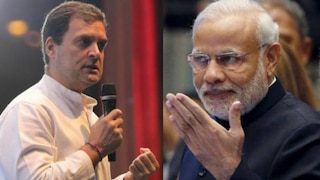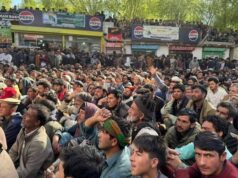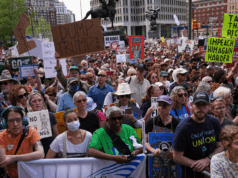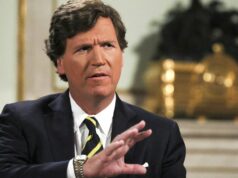In Lockdown 2.0, Rahul Gandhi 2.0 Makes Big Appearance

Narendra Modi, second-term Prime Minister of India, mesmerising orator, is hailed across the world for his electrifying communication.
Yet, even as India battles a relentless pandemic, Modi remains the only PM in our democratic history to have never held an open press conference.
Clearly, the PM understands the critical importance of communication as he is busy working phone lines to world leaders every day on how to battle coronavirus. The same leaders have shown remarkably different behaviour – like Germany’s chancellor, Angela Merkel, who held a master class in communicating via the press on health updates and Donald Trump, the president of the United States, who despite his highly unorthodox and unique style of attacking the free press, does not skip the near daily presidential briefings from the White House.
I could go on and on citing the other politicians who lead democracies and who, unlike Modi, don’t seem to think that questioning by a free press is either optional or extra.
Today, former Congress president Rahul Gandhi, much maligned by the Panna Pramukhs and the BJP IT cell, made Modi look bad in comparison with an unscripted press conference.
Gandhi was composed and did not attack the Modi government on the handling of health crisis. Instead, he made the point that all parties should work together in a united fashion to face the crisis. Gandhi seemed statesmanlike compared to the routine shrill attacks that BJP ministers and Modi make on him. Gandhi seemed extremely reasonable, a pointed departure from his earlier personal attacks on Modi – that politicking has been put on hold by him. Gandhi made the point that he would return to attacking Modi later as “this was not the time”.
In the case of the coronavirusoutbreak, Gandhi has been prescient. On social media, he repeatedly raised the alarm, tweeting as early as February 12 that the Modi government must act to protect India and the economy.
It was Gandhi 2.0 today as he continued with the “constructive suggestions” to the government, asking for urgent steps including direct cash transfers to destitute migrants and providing them with the overstocked food grains in government godowns.
The usual suspects in the media tried to spin this, claiming that Gandhi said “a lockdown is not enough”. This was a lie as Gandhi actually said “A lockdown is not enough. We need to test more” – which is a reasonable position.
Gandhi clearly has some new advisors and had prepped himself, despite the volley of provocative questions, to take the moral high ground of showing solidarity with the government. Given the Modi and the BJP’s consistent aggression against Gandhi, I doubt that they would have done the same if the roles were reversed.
Modi has treated the press with derision and contempt ever since he took over as PM in 2014. The leader of the world’s largest and nosiest democracy decided that he would not be available for scrutiny on his government’s policies and decisions except via near-joke stage-managed interactions. The interlocutors had urgent queries ranging from “Why do you work so hard? Don’t you get tired?” and “Sir, have you written any poetry recently? Please do share with us.” Having known, interviewed and covered Modi as a leader before he became PM, I got the feeling that even the PM was cringing at some of the alleged questions.
While earlier it was extremely unsatisfactory for the PM to dodge the free press and the inevitable questions that the fourth pillar poses in a functional democracy, at a time of this Covid-19 crisis, where all rules have changed, it become ludicrous. And because Modi will not address a press conference, his ministers can’t either for fear of making the boss look bad.
So Ear, Nose And Throat specialist Dr Harsh Vardhan, the Health Minister, is virtually missing in action as coronavirus spreads except for a few and very rare public comments. Instead, we have a Heath Ministry official holding media briefings via a strange lottery system of taking questions. We get vague generalities when urgent and specific communication is the need of the hour. Dr Harsh Vardhan, circumspect in the best traditions of the Modi cabinet, gets an occasional guest appearance in a pandemic where he actually has domain expertise.
The trouble for Modi is that the role of free press in a democracy is pretty non-negotiable and any number of choreographed “events” of banging pots and pans and lighting diyas can’t quite make up for it. Worse is the fog created by fake news. Normally, governments cut panic through mass communication via the media.
Chief Ministers like Ashok Gehlot, Uddhav Thackeray, Arvind Kejriwal and Pinarayi Vijayan shine in comparison to Modi with daily press briefings to send out a message of reassurance and control in these troubled times.
But when even Gandhi, known for late or ineffectual responses at big moments, shows up and handles a full-on Q and A with reporters, the anomaly of the PM not doing the same is ever more startling.




